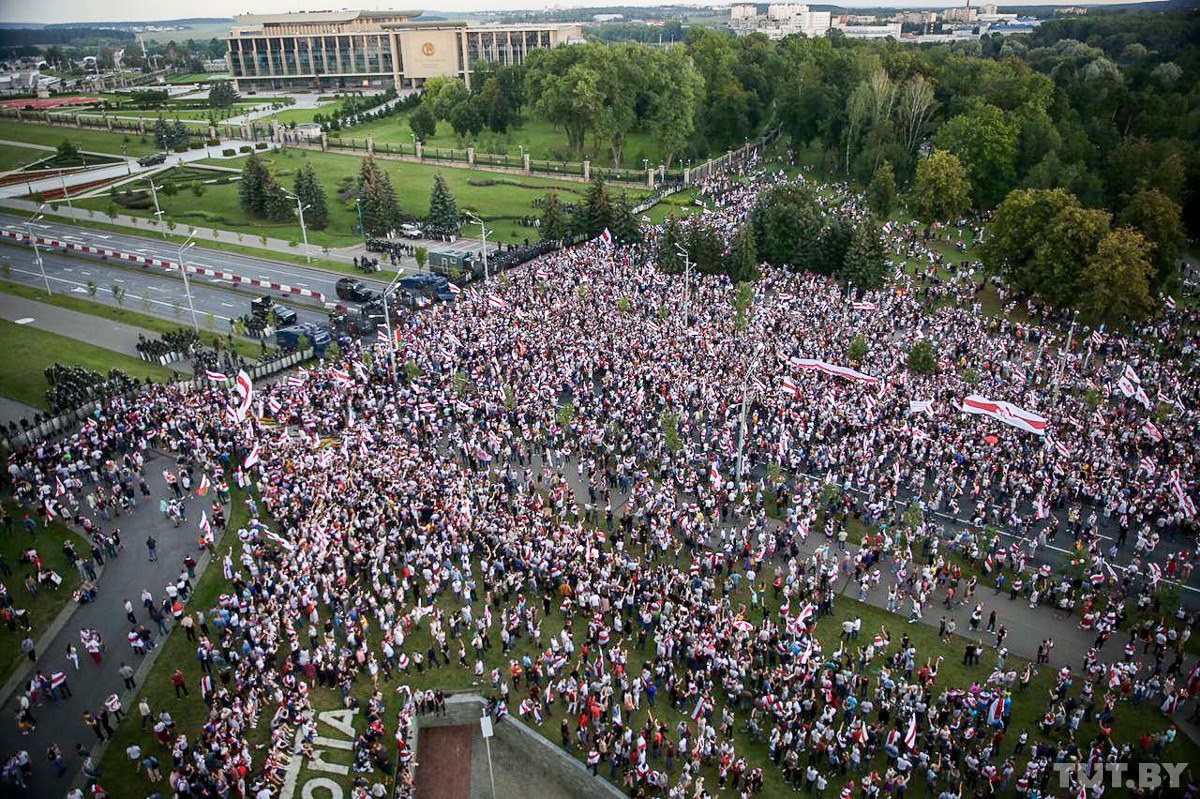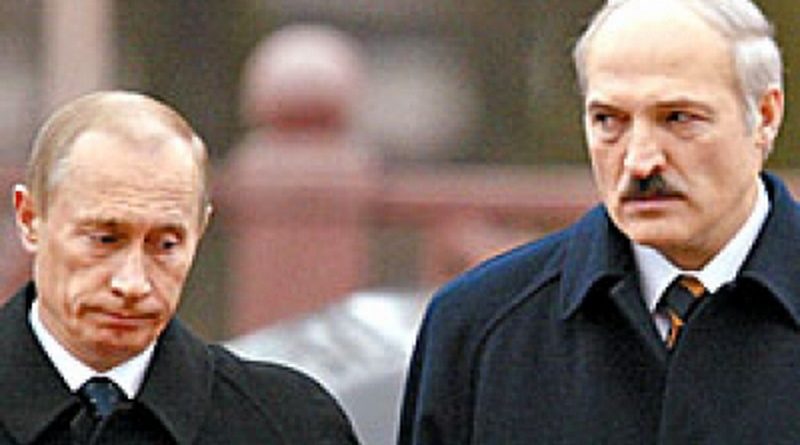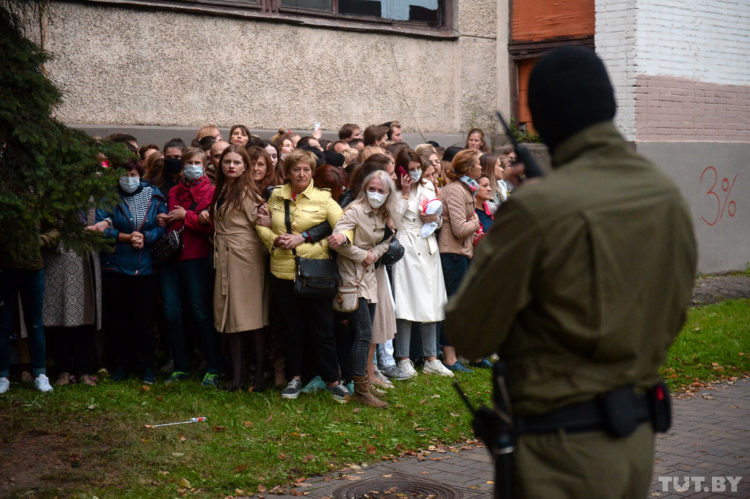She believes that Russian President Vladimir Putin could lean on Alyaksndr Lukashenka and make him enter into a dialogue with his people.
“In my opinion, there will definitely be a long period of political reshuffling. Perhaps the world will help us, so that Lukashenka starts talking to us. For now, he’s only talking to Putin, so, perhaps Putin will help us,” Alexievich said.
Svetlana Alexievich is one of dozens of public figures who formed the Belarus Opposition Coordination Council in the aftermath of the country’s disputed August 9 presidential election.
Svetlana Alexsievich can hardly be called naive. And yet, even she lives in a world of illusions, which for three decades has prevented Belarusians from building their own state. Illusions that have kept Belarus in the Russian orbit, a country that is on the verge of disappearing from the political map of the world and joining the Russian Federation as a region…as Vladimir Putin once suggested to Alyaksandr Lukashenka. And along with Belarus, the Belarusian people will also disappear, simply becoming a smaller part of the Russian nation.
Such are Moscow’s plans for Belarus… and they are quite simple and clear. Just look at what happened in the religious field! The Holy Synod of the Russian Orthodox Church released Metropolitan Pavel of Minsk and Zaslavl from the post of Patriarchal Exarch of All Belarus. Although supportive of Lukashenka, Metropolitan Pavel had called on the government to stop the violence by the security forces and to bring justice to those who were beaten by the police or were unjustly taken into custody.
“We believe and hope that the country’s administration, which has rightly been called to respect and protect the people, will stop the violence, will listen to the voices of the wronged and of those who suffered during this period of confrontation (resistance) and that it will bring before justice and denounce those who have been savage and cruel.”
What we are seeing in Belarus is not political fiction, but a real strategic plan. After witnessing what happened in Crimea and the Donbas, Belarusians should have no doubts about the Kremlin’s intentions towards their country. But, it seems that such doubts remain. And illusions remain. And, there seems to be absolutely no understanding of the most important thing - that Vladimir Putin, just like Alyaksandr Lukashenka, is an enemy of the Belarusian people and Belarusian statehood.
Lukashenka will do anything to cling to power. He will not go down without a fight. Putin also needs to strengthen his power in Russia, but his main political mission lies in absorbing Russia’s neighbours. Therefore, Putin can in no way be an ally or even an intermediary for Belarusian oppositionists, and neither can he ever be a friend of the Belarusian people, because such a nation does not exist for him.

It is vain to think that Western leaders can influence Putin and force him to abandon support for the Belarusian dictator. First, Putin himself will refuse to support Lukashenka if he sees the possibility of forming an even more pro-Russian puppet regime than Lukashenka’s. Secondly, we have already witnessed the inability of Western leaders to influence Putin during the Ukrainian Revolution of Dignity and after Russia’ invasion of Ukraine. Thirdly, what happened in Moldova clearly illustrates how most agreements between the West and Moscow end - when the West and Russia agreed to support a coalition of pro-European and pro-Russian forces, but Igor Dodon’s election confirmed that Moldova’s EU integration is all but stalled.
It is clear that the Belarusians have yet to experience a major social and political upheaval. For the last three decades, they have been living in a cocoon, and, in fact, surviving without a real functioning state, without an active political life, without competition, without freedom of speech, without a free media, without everything that cements a society and makes for a thriving nation.
Despite their inexperience, Belarusians should look to the achievements and mistakes of their neighbours. As Belarus approaches its economic and political transition, Belarusians should be careful not to fall into the Kremlin trap, even if they believe that this trap will rid them of Lukashenka.





